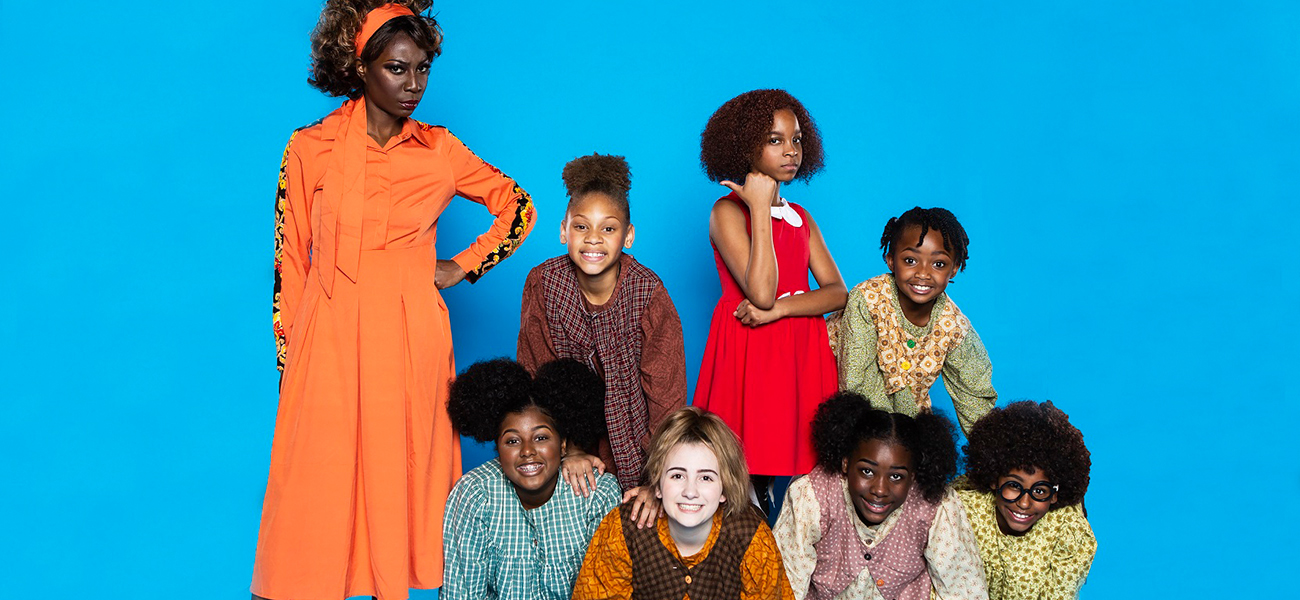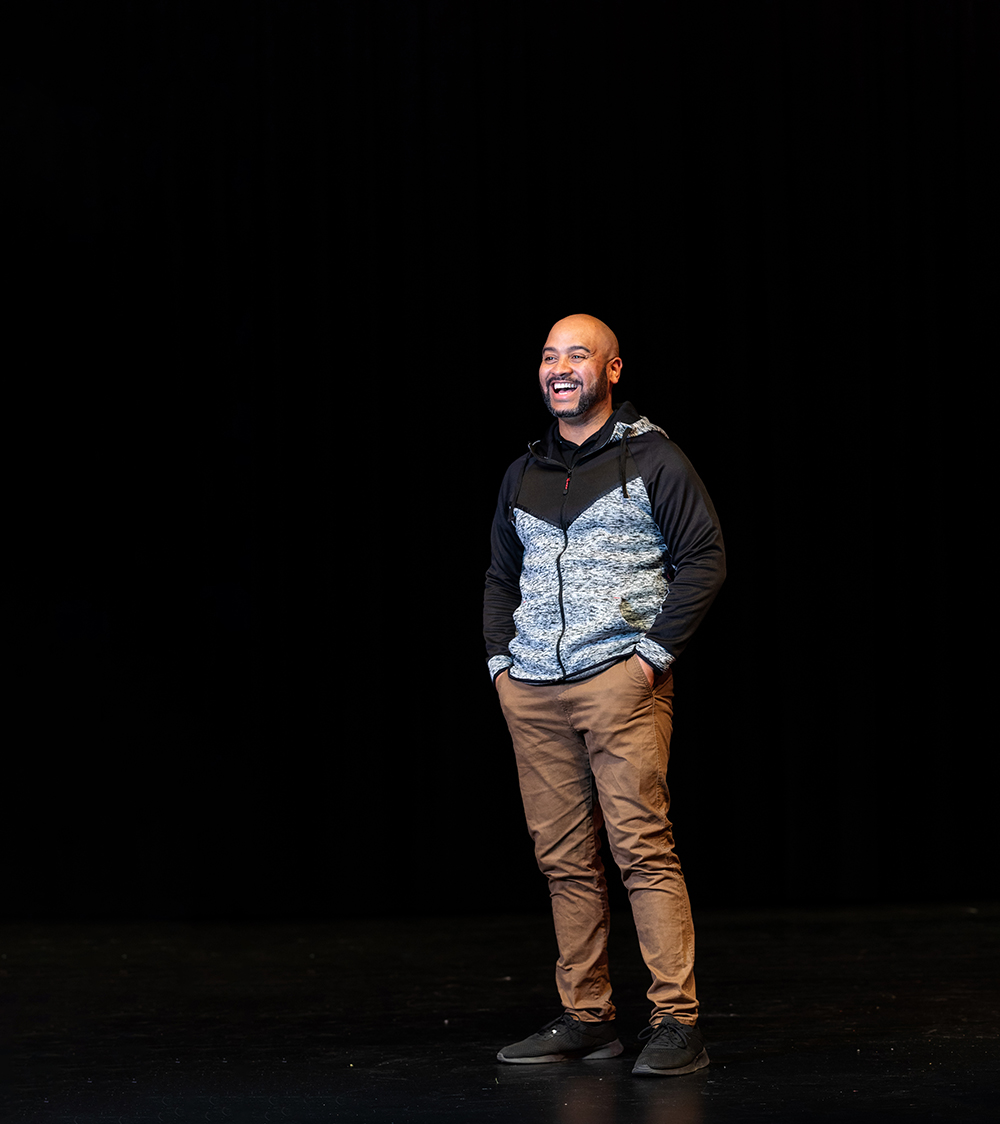In 2008, actor and theater director Gregory Williams stepped away from the itinerant thespian life, which had brought him through many of the country’s great theater hubs, to return to his hometown of Baton Rouge. He arrived with two things: a knowledge of the artistic and business sides of his craft; and a mission to carve a space for Blackness to be celebrated in the performing arts.
That space took the form of New Venture Theatre. But, after 10 years, 13 seasons and over 70 productions, a confluence of setbacks forced Williams to let the curtain fall on the project. It closed permanently this past June.
225 sat down with Williams to take a look back at New Venture Theatre, examining its accomplishments, what it means to lose it, and what comes next in his career—and Baton Rouge theater as a whole.
|
|
|

Tell us how you first developed the idea for New Venture Theatre.
I just kept struggling with walking into spaces and never being able to fully operate in my Blackness in theater. Even through colorblind casting, it felt like I was being asked to assimilate my character to what the white persona was, or I was waiting ‘til February when A Raisin in the Sun came. And I just had a bit of a breakdown, to be honest. Through speaking to some friends and through some therapy, I realized that it was a calling for me to start a company that creates a space to celebrate Black actors and actors of color, and allowed them to act in their fullness in any role.
How did you start the process of founding the theater?
I did some intern work at the National Black Theater Festival, and just was talking to every Black theater director around the country. They taught me how to make something that seemed so abstract and full of fantasy really tangible, and they really mentored me through the process of building the 501(c)3 nonprofit and getting the funding and really structuring the organization so that it could fulfill its mission.
Was founding it scary for you at all? So you took the tools he gave you, but fought through the arts rather than politics.
For me, it wasn’t. My grandfather (Elliott Baham) started the first Louisiana Black voting ward in Baton Rouge, so growing up I dealt with a lot of racism. He wanted me to be a politician, the next Cleo Fields. But unfortunately, he got a theater kid. I always hung out with him, and I just understood how Louisiana worked and how racist and segregated it could be. So I was never afraid of the fight, because I’d always seen him do that. I was ready for it.
So you took the tools he gave you, but fought through the arts rather than politics.
Absolutely. I always kind of looked at it like that was my mutant power: I was able to create this platform for people, and also protect it so that, as actors came, they were protected in that space and could fully operate in their talents. That’s my gift.
Tell us how New Venture progressed after you founded it in 2008. Were there any key moments where you saw your mission come fruition?
I think the second year of our operation, we got a call that The Color Purple musical had just closed on Broadway and they were looking to kind of shop it around to some theaters in the South, and we had been selected to be the first theater in the South to produce the musical. That was huge, because we were so new. But the one thing that I think that we did differently was marketing. Social media had kind of just bloomed, and we made sure that New Venture was at the forefront of all that digital goodness. And it boosted us to this national image, probably more quickly than I thought it could ever happen! But it really was a blessing. We did 16 performances of The Color Purple, 780 seats, all sold out. It was unbelievable.
Is there anything unique about Baton Rouge that makes it such a good incubator for what you were trying to do?
One moment I do remember when I understood New Venture’s importance was when Alton Sterling got killed. We were producing a show called Hands Up Don’t Shoot, and my inbox just blew up with hate mail and support mail. And the funny thing is, I realized that no one in the city actually researched the show, because it was seven different perspectives of police brutality. It was all the aspects, because we wanted to create conversations, not necessarily give answers. And so, through that, I learned that this city sometimes succumbs to sensationalism, where we jump on bandwagons more so than we understand what the actual problem is. That’s when I really understood.
Well, aside from some of that hate mail, it sounds like the wind was very much at the sales of New Venture Theatre. So I have to ask, what happened that you had to close its doors?
The 2016 flood is where I really think it all started. We lost probably over $50,000 worth of costumes and set pieces, and most of our audience members also lost their homes. And you really can’t ask people to buy tickets to a theater when they’re trying to make ends meet.
And then the pandemic happened. I had somebody tell me something a long time ago that I never understood until the pandemic. She said, ‘Greg, there comes a time when you realize you have fulfilled a mission,’ and she said I’d never understand that until it happened. And when the pandemic happened, I started to really understand that theater would never be what it was before. And that’s not a bad thing, it was just going to become something new. I also understood that my focus has been really changing to fighting a lot of LGBTQ issues for Black Southern queer people. For me that was the main issue, that I understood that I had closed a chapter. Before New Venture Theatre, I could not see Black boys and girls really performing anywhere. And now I look around, and there are so many opportunities. So I had to accept the fact that what I had set out to do, in my own little way, I had done.
Was there anyone who disagreed with that decision?
Absolutely. That was the biggest thing I had to deal with. I had a lot of audience members who were upset, and a few actors who of course were upset, but I also had to understand that if I didn’t take care of myself and I didn’t truly follow where the universe was taking me, then I wouldn’t be living with purpose. And that was hard.
It sounds like stepping back from New Venture gave you a chance to take a broader look at the theater scene as a whole. What have you seen change over the 10 years that NVT was operating?
It really hit me when a friend of mine asked me to sit in on an audition. They were doing Descendants, the Musical. I was sitting there, and I was listening to everybody who was on the panel, and it was the first time I really heard a panel acknowledge everyone’s talent. Before, I would literally hear people say things like, ‘could a Black girl play Mrs. Potts in Beauty and the Beast?’ (Even though she’s a pot!) And, in this audition, I heard someone say, ‘Well, she’s the best singer,’ without mentioning her race, and it brought me to tears. I’ve even sat down with other theater companies around the city, and they asked me ‘How can we do better? What can we do to make sure we’re doing better with equity in our casting?’ That’s the goal. That’s always been the goal. Allowing me to take a step back has brought me to this great place where I’m able to support it in a broader stream.
Are there any specific organizations in Baton Rouge that you’ve seen step up in that mission?
I think Independence Park Theatre is doing some really brilliant work with younger people. Any show you see, it’s a melting pot on that stage. And I don’t mean just Black and white; I mean younger kids who are out and proud, which was never a thing when I was growing up. It blows my mind to see that, and I love the work that they’re doing for the community. I’m also directing a show for Theatre Baton Rouge right now that I probably would never have had the chance to direct, and I appreciate them bringing in a Black director to direct a non-Black show.
Can you tell me more about what you do as artistic director of Independence Park Theatre?
I don’t direct the shows, but I manage the rentals of the facility—not the programs. And I’ve also got to give it to LSU and Swan Palace also, because they have called me several times, and our schedule hasn’t worked, but they have been a huge support of me and my mission, and I’ve even seen them push it past New Venture’s closure and ask for my advice on things, as well.
Let’s talk about your most recent project: Hoodoo House TV.
Hoodoo House TV is my chance to tell Black queer stories. For the longest time, I have felt like there was this missing story of the guy who stays behind in the South and doesn’t run to what I call these gay meccas like Atlanta or New York or Chicago. What happens to the folks who stay and survive and thrive? I felt called to start an entire platform for these stories, because they’re so rich: You have drag, the DL (down-low) situation, folks who are trying to have healing with their parents, trying to fall in love when no one teaches you how gay love is really supposed to look. All of those ingredients, and so I wanted to create a streaming platform—which I feel in a lot of ways is the future of storytelling—that just focused on Black queer stories: the good, the bad and the ugly.
You’ve lived in some big cities, like Chicago, New York and Philadelphia. With all that you’ve seen, what makes you choose to stay here and tell Southern stories?
That’s something I’ve been asked my whole life, ‘Why do you stay in Louisiana?’ And I’m one of those weird people that love this state: I love the food, I love the people, I love the culture. It’s the heart. I have such a calling to just uplift and celebrate this place that I think gets a lot of bad rep, but I see so much good in it. I think a lot of it comes from working with my grandfather. He really taught me to look past what the world teaches you this one dimension of somebody is, and I’m so excited to break that dimension up and tell these full, well-rounded stories.
What made you want to transfer from the stage to the screen? Do you hope that one day there will be space for those stories in live theater?
I’ve always been a writer, but a lot of the stories I wrote, I realized I never could stage for a general audience. And I had to be honest to my writer’s voice and understand that it is a little risqué, it is a little out there, but I can’t deny it, because it’s given to me. So Hoodoo House is my answer to developing that skill and giving that space room.
Do you hope that one day there will be space for those stories in live theater?
I do. And there is a lot of it, but I’m praying that I will see more of it from the South.
Well, perhaps that’ll be your next mission.
You know it!
|
|
|
FALL RADAR
Upstage Theatre turns 20—and comes home for Christmas
Founded and run by now-retired theater professor Ava Brewster-Turner, Upstage Theatre’s mission is nurturing and growing the talents of African-American artists. The award-winning company stages shows in its 50-seat black box theater on Wooddale Boulevard. Check out its last show of the year, Home for Christmas, Dec. 4 + 10. upstagetheatre.biz
A shortened version of this article was originally published in the October 2022 issue of 225 magazine.





